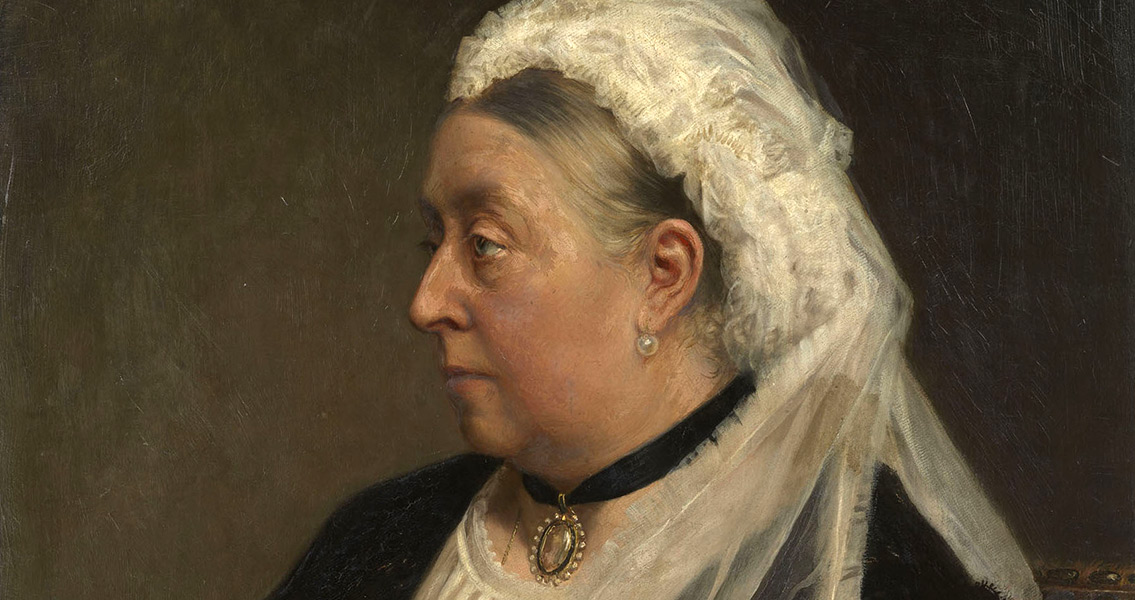<![CDATA[Queen Victoria died on 22nd January 1901, at Osborne House on the Isle of Wight. More than any other monarch in recent times, Queen Victoria's death seemed to herald the end of an era. The second longest serving monarch in British history, (her reign recently over taken by the incumbent Queen Elizabeth II) for many British citizens Victoria was the only monarch they ever lived under. Her reign coincided with a period of dramatic change in British culture, politics and society, many of which can still be felt today. Queen Victoria has become synonymous with this crucial period in history: the Victorian era. Victoria became heir to the throne shortly after her birth in 1819, following the death of her father. After the death of her uncle William IV, Victoria ascended to the British throne in 1837. She was just eighteen years old. Away from the royal family, powerful forces were changing the shape of Britain, dragging it into modernity. At home industrialisation was creating an increasingly urbanised society, changing the nature of labour relations and turning England into a manufacturing power house. Abroad, an increasingly global looking foreign policy was starting to take shape which would culminate in Victoria being crowned Empress of India in 1876. Through Queen Victoria's reign, and with her support, these factors culminated in the British Empire, one so large it was joked the sun never set on it. The modern, constitutional monarchy that we know today was largely shaped during Victoria's reign. Saying that Victoria herself pushed for the reforms to British politics would be misleading, failing to take into account the impact of enormous popular activism which pushed for change 'from below'. However, Victoria oversaw the smooth transition of this period, ensuring the monarchy adapted enough to still serve a function in the new system. Direct political power moved away from the sovereign, with a series of Acts broadening the base of the electorate. The culmination was the 1884 Representation of the Peoples Act, which gave the vote to anyone in accommodation worth at least £10 a year. Queen Victoria may not have been responsible for these groundbreaking pieces of legislation, but she found a way for the monarchy to fit into the new system. As a two party political system came into being, dominated by the Liberal and Tory parties, Victoria served as mediator between arriving and departing Prime Ministers, a role the monarchy still performs to this day. At the same time, Queen Victoria and her family took advantage of developments in transport to travel extensively, ending the royal family's seclusion in London. No longer the dominant political entity, the royal family had to evolve and find a new function. From travelling the country to build connections with the 'people', to serving as mediator between incoming and outgoing governments, echoes of the model of monarchy Queen Victoria helped form can still be felt in the modern British monarchy. It's important to point out though that Victoria still interfered with Parliament in ways which would seem outrageous were a monarch to do so today. In 1864 she pressed parliament to avoid embroiling Britain in the Prussian-Austrian-Danish War. In 1880 she attempted to block William Gladstone from becoming British Prime Minister, a move which ultimately failed. Both actions show that although considered crucial in the creation of the modern constitutional monarchy, Victoria was also willing to try and affect parliamentary decisions. The fact that Queen Victoria was the target of six serious assassination attempts shows that she was far from universally popular. Queen Victoria's massive popularity at the end of her life means her reign is sometimes looked back on through rose-tinted glasses, failing to take into account the fact that for significant periods of her time in power her popularity was in fact quite low. In the 1860s a Republican movement grew increasingly influential, showing that many were dissatisfied with the continued influence of the monarchy. What can't be denied is that Victoria's reign was hugely influential on the modern monarchy and the nineteenth century: for better or worse crucial in shaping modern Britain. Similarly, the rise of the British Empire, with its triumphs and atrocities, are inextricably linked in popular memory with Queen Victoria. The same can be said for stereotypical 'Victorian values', a repressive, restrained and restrictive social code which is often argued to have originated from Queen Victoria's own values and continues to influence British society today. With this in mind, the 22nd January, 1901, undoubtedly brought to a symbolic end a period of drastic change and development for Great Britain and Ireland. ]]>
Anniversary of Queen Victoria's Death
